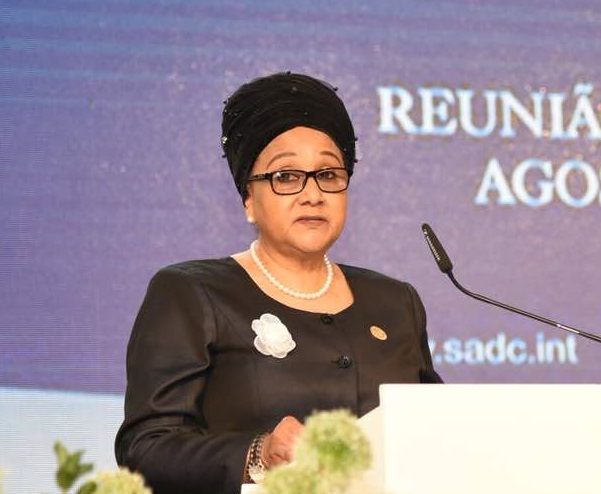
Intra-regional SADC trade declining despite members’ commitment to open borders

By Innocent Gore of the Southern African Research and Documentation Centre based in Harare.
The quest to transform southern Africa into an industrialised region is being hampered by the declining level of intra-regional trade and the lack of diversification of domestic economies, according to an assessment done by the SADC Secretariat.
The assessment showed that while economic integration is progressing well in the Southern African Development Community (SADC), there is still work to be done if we are to effectively promote industrialization and improve economic growth in the region.
The assessment shows that the structures of SADC economies remain undiversified with a growing dependency on natural resources and export of unprocessed commodities characterized by a stagnant industrial sector, SADC Executive Secretary, Dr Stergomena Lawrence Tax told the 40th SADC Summit held on 17 August.
The assessment revealed that natural resource-based sectors such as agriculture and mining continue to dominate economic activity in most SADC Member States, accounting for on average 25% of Gross Domestic Product (GDP).
Exceptions are member states like Mauritius and Seychelles that are implementing policies to expand certain sectors such as the financial sector. While the contribution of the manufacturing sector to GDP is declining, the financial sector contribution is, therefore, increasing in these two Member States.
After peaking at an average of 16% of GDP in 2001, the share of the SADC manufacturing sector to total GDP has been on a downward trend and currently stands at around 13% according to SADC figures.
The assessment further reveals that despite some improvements in intra-SADC trade flows, the total intra-SADC trade, which stood at 19.3% in 2018, is significantly less compared to other regions, Dr Tax said.
Figures from the SADC Secretariat show a downward trend in the flow of goods among SADC Member States since hitting a peak of 21.6% in 2016.
According to the figures, merchandise trade among SADC Member States slowed down to 20% in 2017, before declining further to 19.3% in 2018.
This could be explained by the relatively poor economic performance of the traditional export market South Africa, which has not registered GDP growth higher than 1.8% for the past five years.
These observations, among others, point to the urgent need for member states to improve competitiveness by addressing the supply-side constraints, including strengthening cooperation in cross-border infrastructure, and deal with non-tariff barriers that remain a hindrance to the smooth flow of goods.
The findings also point to the importance of ratifying and implementing the SADC Protocol on Industry as an important instrument for the promotion of an industrialised and globally competitive regional economy, Dr Tax said.
She said 12 member states have signed the protocol, but only Seychelles has ratified the legal instrument.
The Protocol on Industry was approved by the 39th SADC Summit held in Dar es Salaam, United Republic of Tanzania in August 2019 as a legal instrument that aims to improve the policy environment for industrial development and support implementation of the Industrialization Strategy and Roadmap 2015-2063.
The protocol will enter into force following ratification by two-thirds of SADC member states or at least 11 signatory countries.
It is envisaged that the required minimum number of member states will ratify the protocol by the end of 2020 to facilitate its implementation and the advancement of the industrialization agenda in the region.
Once ratified, the Protocol on Industry will become a stand-alone and binding legal instrument that will entrench and give legal effect to the SADC Industrialization Strategy and Roadmap and its related Cost Action Plan and will ensure adequate coordination, monitoring and evaluation of implementation.
In addition, the protocol is expected to strengthen the economies of countries in SADC and ensure that they are driven by industrial development and not based on exports of raw resources. This will help in strengthening the level of industrial development in the region.

Dr Stergomena Tax is the Executive Secretary of the Southern African Development Community Secretariat based in Gaborones, Botswana.
Southern African News Features are produced by the Southern African Research and Documentation Centre (SARDC), which has monitored regional developments since 1985. www.sardc.net











































